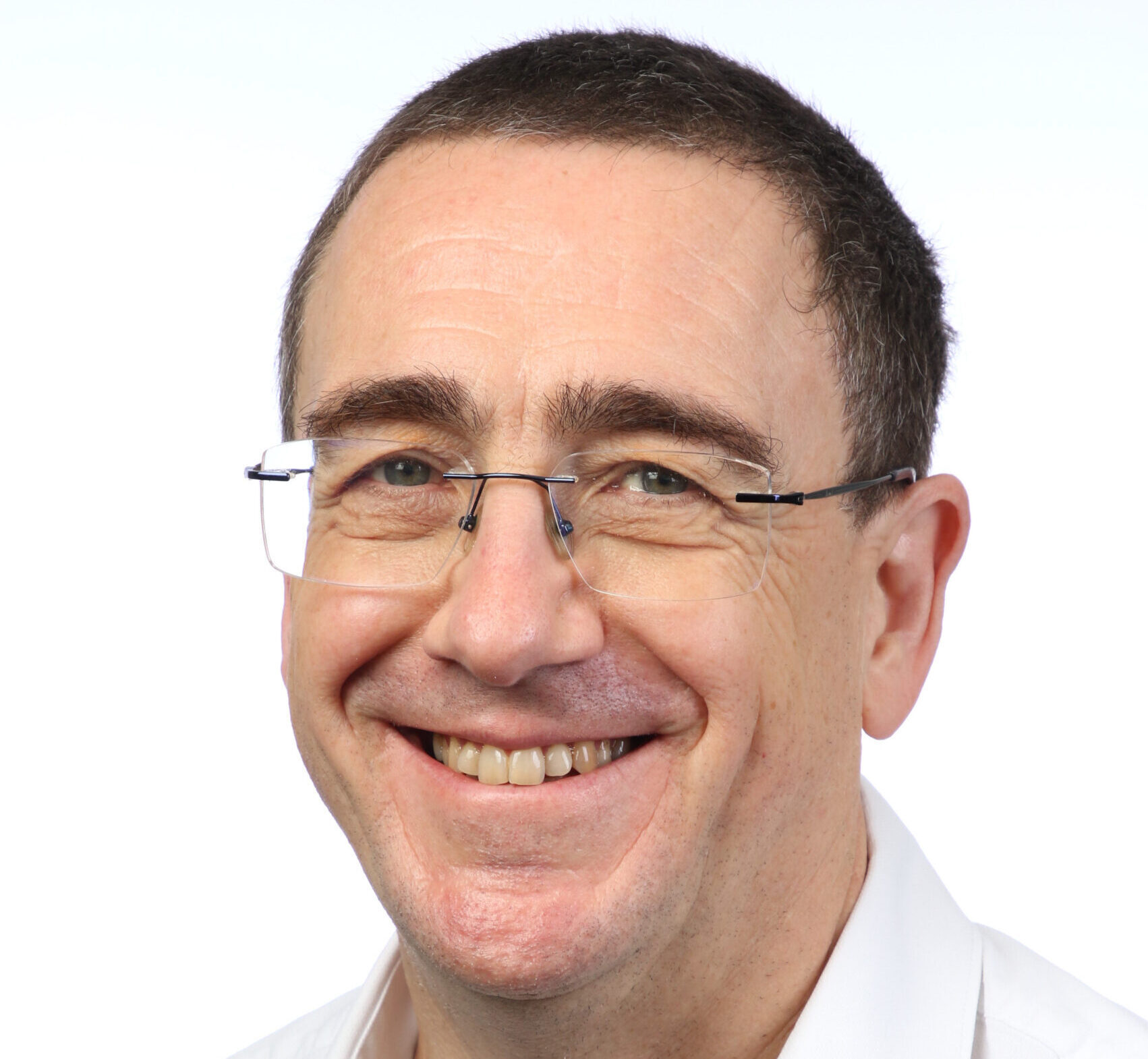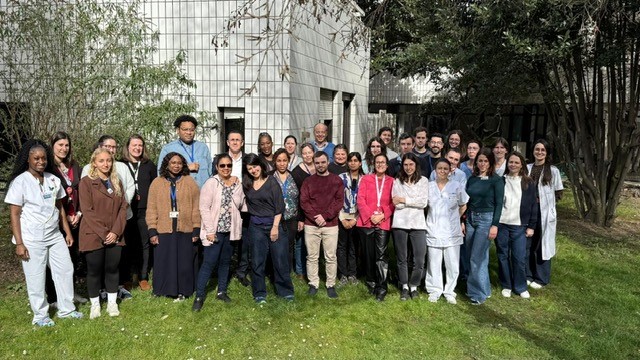- About us
- A new Institute dedicated to combating leukemia
- Scientific and medical program
- History of Hematology on the Saint-Louis Campus
- The Leukemia Institute’s governance
- Press
- Contact us
- Our news
- Winners of the internal call for projects 2026
- Perspectives in the treatment of aplastic anemia
- The 2025 Olga Sain Prize
- Hugues de Thé’s Wishes
- Profile of Vincent Bansaye, Professor at École Polytechnique
- Support us
- Join us
- You are
- Patients and relatives
- To receive care and support
- Become an expert patient
- Discover the Leukemia Institute
- Researchers
- Research
- Clinical trials
- Discover the Leukemia Institute
- Healthcare professionals
- Refer a patient
- Our clinical research
- Discover the Leukemia Institute
- Industry partners
- Discover the Leukemia Institute
- Translational research
- Donors
- Support us
- Discover the Leukemia Institute
- Care
- Patient care
- Being Treated at the Leukemia Institute
- Cancer treatments
- Supportive Care
- Open Multidisciplinary Meetings
- Our clinical services
- Saint-Louis Hospital – Department of adult hematology
- Saint-Louis Hospital – Hematology Transplant Unit
- Saint-Louis Hospital – Department of Pharmacology and Clinical Investigations
- Saint-Louis Hospital – Adolescent and Young Adult Unit
- Saint-Louis Hospital – Outpatient Hemato-oncogenetics Unit
- Saint-Louis Hospital – Department of senior hematology
- Robert-Debré Hospital – Department of pediatric hematology and immunology
- Necker Hospital – Department of Adult Hematology
- Cochin–Port Royal Hospital – Department of clinical hematology
- Avicenne Hospital – Department of clinical hematology and cell therapy
- Our medical laboratories
- Hematology Medical Laboratory, Michaela Fontenay
- Hematology Medical Laboratory, Jean Soulier
- Molecular Genetics Unit, Hélène Cavé
- Hematology Medical Laboratory, Vahid Asnafi
- Patient information
- Acute Myeloid Leukemias
- Acute Lymphoblastic Leukemias
- Myeloproliferative Neoplasms
- Myelodysplastic Syndrome
- Cancer treatments
- Supportive Care
- Psychological Support
- Research
- Our research teams
- Hugues de Thé’s team – Molecular pathology
- Raphaël Itzykson’s team – Functional precision medicine for leukemia
- Michaela Fontenay’s team – Normal and pathological hematopoiesis
- Françoise Pflumio’s team – Niche, Cancer, and Radiation in Hematopoiesis
- Sylvie Méléard’s team – Population Evolution and Interaction Particle Systems
- David Michonneau’s team – Translational Immunology in Immunotherapy and Hematology (TIGITH)
- Lina Benajiba’s team – Identification and targeting of extrinsic regulators of myeloid malignancies
- Karl Balabanian’s team – Lymphoid niches, Chemokines and Immuno-hematological syndromes
- Alexandre Puissant’s team – Molecular Mechanisms of Acute Myeloid Leukemia Development
- Stéphane Giraudier’s team – Chronic Myeloid Malignancies, Microenvironment & Translational Research
- Diana Passaro’s team – Leukemia & Niche Dynamics
- Camille Lobry’s team – Genetic and Epigenetic control of Normal and Malignant Hematopoiesis
- Jean Soulier’s team – Stem cell dysfunction and secondary AML
- Sylvie Chevret’s team – Biostatistics and clinical epidemiology
- Our technological platforms
- Our clinical research
Accueil » Patient care » Robert-Debré Hospital – Department of pediatric hematology and immunologyRobert-Debré Hospital – Department of pediatric hematology and immunology
...Jean-Hugues Dalle
Head of department

Access and contact
Robert-Debré Hospital
48 Bd Sérurier,
75019 Paris
Diseases managed
Lymphoma
Idiopathic and Congenital Bone Marrow Failure / Aplasia
Autoimmune Cytopenias
Hemoglobinopathies (Sickle Cell Disease, Thalassemia)
Storage Disorders and Leukodystrophies
Lymphoma
Idiopathic and Congenital Bone Marrow Failure / Aplasia
Autoimmune Cytopenias
Hemoglobinopathies (Sickle Cell Disease, Thalassemia)
Storage Disorders and Leukodystrophies
Department activities
The department focuses on the following activities :
-
Chemotherapy and immunotherapy for malignant hematologic disorders (acute and chronic leukemias, non-Hodgkin lymphomas, Hodgkin disease)
-
Management of severe “benign” hematologic disorders (congenital or acquired bone marrow failure, hemoglobinopathies)
-
Hematopoietic stem cell transplantation – first department in France
-
CAR-T cell therapy for leukemia – first department in France
-
Gene therapy using hematopoietic stem cells for leukodystrophies and hemoglobinopathies
-
Development of new drugs in hemato-oncology and immunology (targeted therapies, immunotherapy)
The department treats patients aged 0 to 18 years and has a capacity of 36 beds.
It also carries out additional missions as a:
-
Reference center for the Île-de-France Pediatric Hematology and Oncology Network (RIFHOP)
-
Contributing center of the interregional pediatric oncology organization CANPEDIF, certified by the French National Cancer Institute
-
Member of the APHP Nord Université Paris Cité Cancer Institute
-
Center of the French Society for the Fight Against Childhood and Adolescent Cancers and Leukemias (SFCE)
-
ITCC Center
The department is authorized for pediatric oncology activities (chemotherapy), allogeneic and autologous hematopoietic stem cell transplantation, CAR-T cell administration, collection of hematopoietic stem cells (bone marrow and peripheral blood, human research studies.
The department is JACIE-accredited.
It is also approved for training pediatric and hematology residency programs (DES) and specialized training fellowship (FST) in oncology, with a focus on pediatric hematology and oncology.
Our research themes
Acute leukemias are the most common type of cancer in children. While more than 80% of patients can now be cured with first-line treatment, some leukemias remain resistant to current therapies. Current challenges include introducing new therapeutic strategies based on immunotherapy and targeted therapies for patients with the poorest prognosis, while reducing the use of chemotherapy for patients with the most favorable prognosis to minimize the risk of both acute and long-term toxicity.
Our allogeneic transplant unit performs approximately 20% of national pediatric transplants, with half for patients with malignant hematologic disorders and half for patients with non-malignant hematologic disorders. Transplants are performed using related or unrelated donors, with bone marrow, peripheral blood stem cells, or cord blood, following either myeloablative or reduced-intensity conditioning.
It is estimated that 5% of children with acute leukemia carry an underlying genetic predisposition. At Robert Debré Hospital, we have established a dedicated care pathway for their management, including oncogenetic consultations, genetic sequencing, specialized psychological support, and hematologic care.
Multidisciplinary Team Meetings
Robert Debré – Trousseau – Saint Louis AJA – St Denis (Meeting): Biweekly on the 1st and 3rd Tuesdays from 4:30 PM to 6:30 PM
onthly on the 3rd Thursday from 5:00 PM to 7:00 PM
Monthly on the 2nd Thursday of the month at 5:15 PM
Biweekly on Tuesdays from 4:30 PM to 6:00 PM
RCPOP: Monthly on Wednesdays at 5:00 PM
Hematogenetics: Biweekly on Thursdays at 3:30 PM
Monthly on Tuesdays from 3:00 PM to 5:30 PM
1st and 3rd Wednesdays from 2:30 PM to 4:30 PM
Team members
Pr Jean-Hugues DALLEPU-PHPr André BARUCHELPU-PHPr Thierry LEBLANCPHDr Marie-Emilie DOURTHEMCU-PHDr Marion STRULLUMCU-PHDr Saba AZARNOUSHPHDr Benoit BRETHONPHDr Mony FAHDPHDr Lou LE MOUELPHDr Karima YAKOUBENPHDr Charlotte CALVOPHCDr Morgane FROMENTPHCDr Anne-France RAY LUNVENPADr Elisa SERORPADr Cléa TARDYClinical PharmacistHélène LacroixParamedical Manager of the DMUClaire BALDOSenior Health ExecutiveTanya BARBUHealth ManagerSalim MOHAMEDHealth ManagerElodie COIPELHealth ManagerHealthcare team
The care team consists of nurses and pediatric nurses, childcare assistants, hospital secretaries, medical-administrative staff and logisticians, dietitians, teaching staff, an early childhood educator, an activity coordinator, psychologists, and social workers.
The department also has a clinical research team composed of one physician, two research engineers, and a clinical research coordinator.
Several reference nurses carry out specific care-related tasks, both during the day and at night, to ensure continuity, quality, and safety of patient care. They also support new staff in becoming familiar with the department’s practices.
Two care coordination nurses manage patients’ care pathways, structuring communication sessions and providing individualized support in collaboration with the medical team. They also organize hospital discharge in coordination with external healthcare facilities, community professionals, and assist families in preparing for the return home.
Two transplant coordination nurses organize the complex pathways of patients before and after allogeneic transplantation, in collaboration with referring teams, inpatient units, and partner services.
Two therapeutic education programs are in place within the department, one dedicated to acute lymphoblastic leukemia and the other to allogeneic transplants. These programs are coordinated by a reference nurse trained in Therapeutic Patient Education (TPE).
Training and professional development
The department fosters a strong culture of training and continuous professional development. A structured integration program is offered to all new staff, including a mentoring pair, theoretical and practical training sessions, as well as regular follow-up with management.
Annual departmental seminars are organized, bringing together physicians, paramedical staff, and institutional partners to discuss a variety of topics.
The department’s teams participate in conferences and congresses to share their experiences and innovative practices. They are also involved in writing professional articles to disseminate field-based knowledge.
We also conduct innovative training activities, such as:
-
“Error Rooms”
-
Educational escape games related to febrile aplasia
-
In-situ healthcare simulation sessions, organized with the support of the hospital’s simulation team. These on-site simulations help strengthen clinical, organizational, and interpersonal skills in a safe and educational environment.
Patient Information
Various association-linked professionals interact with patients and families during hospitalization, including:
-
Clowns from the “LE RIRE MEDECIN” association
-
Volunteers from the “PRINCESSE MARGOT” association
-
A reflexologist
-
A socio-esthetician
-
Staff from CAMI Sport
-
Volunteers from the “BASKET AUX PIEDS” association
-
Volunteers from the “MON-A” association
-
Volunteers from the “LA CHAINE DE L’ESPOIR” association
Some associations occasionally engage in the department to enhance patient well-being and support the healthcare staff, through activities such as gift distribution, festive events, and providing equipment to improve the service:
- A CHACUN SON EVEREST
- CEKEDUBONHEUR
- ENSEMBLE CONTRE LA LEUCEMIE
- IMAGINE FOR MARGO
- JUSTE HUMAIN • LAURETTE FUGAIN
- L’ENVOLEE DES MAUX
- LES AILES DE PAULO
- NOURETTE
- PETITS PRINCES
- SUPER HEROS
- TOUT LE MONDE CONTRE LE CANCER
- PRINCESSE MARGOT
Our clinical trials
More than 30 academic or industry-sponsored clinical research studies, ranging from Phase 1 to Phase 3, are conducted in the department, along with several observational studies.
Prof. André BARUCHEL and Dr. Marion STRULLU nationally coordinate the European Phase 3 ALLTogether trial, which aims to improve cure rates in patients aged 0 to 18 years receiving first-line treatment for acute lymphoblastic leukemia (ALL).
Prof. Jean-Hugues DALLE nationally coordinates the international FORUM02 trial, which primarily aims to improve post-transplant survival in children and adolescents with acute lymphoblastic leukemia (ALL).
Dr. Benoit BRETHON nationally coordinates the international Phase 3 INTERFANT-21 trial, which primarily aims to improve cure rates in infants under 1 year old with first-line treatment for acute lymphoblastic leukemia (ALL) harboring KMT2A rearrangements.
Stay up to date by subscribing to the institute's newsletter
- Discover the Leukemia Institute
- Translational research
- Our clinical research
- Clinical trials
- Become an expert patient
- To receive care and support
- A new Institute dedicated to combating leukemia


Featured research projects
Tumor cells release fragments of genomic DNA of varying sizes into the plasma, known as circulating free DNA (cfDNA). We hypothesize that analysis of plasma cfDNA could serve as an alternative or complement to bone marrow sampling for monitoring tumor burden progression in patients treated for acute lymphoblastic leukemia (ALL).
Coordinators: Dr. Marion STRULLU and Prof. Hélène CAVE